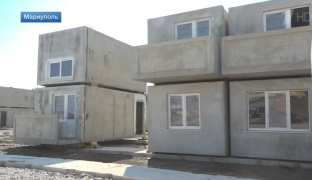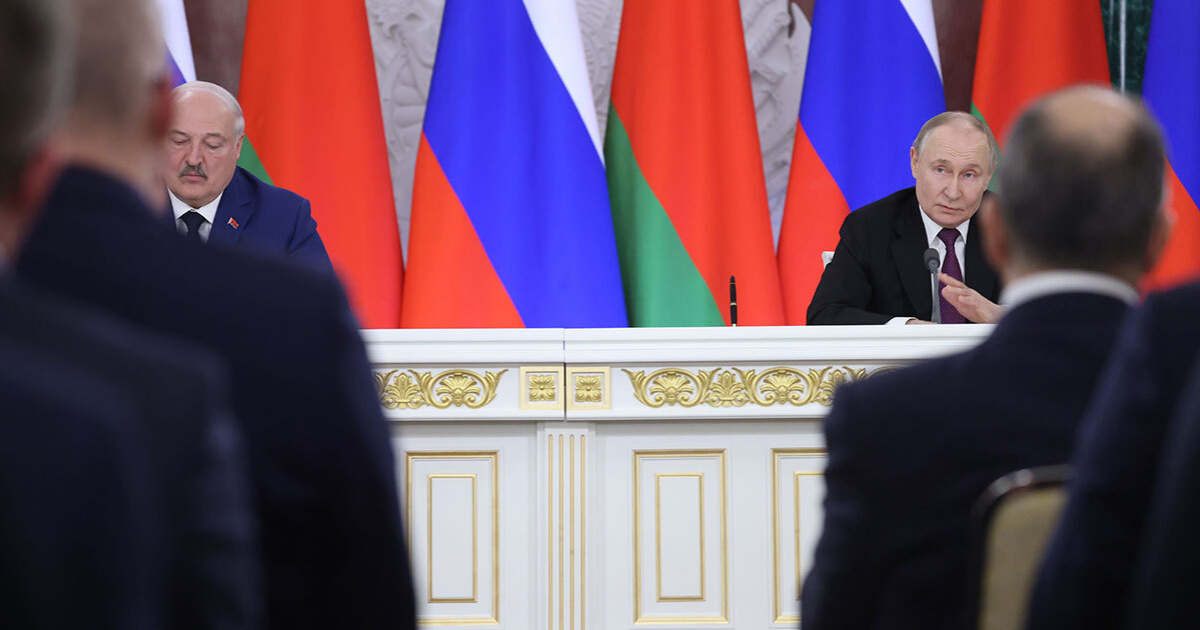
The complete shutdown of ferroalloy plants in late October to early November was a response from their owner, oligarch Ihor Kolomoisky, to his own arrest. The "patriot who prevented the 'russian spring' in the Dnipropetrovsk oblast in 2014" (as the media wrote at that time) thereby inflicted serious economic damage on Ukraine. However, this is unlikely to allow him to get out of detention.
The common denominator
Kolomoisky was taken into custody on September 2 as part of the investigation into several criminal cases. In one of the episodes, the oligarch is suspected of embezzling UAH 9.2 billion from his former ownership of Privatbank.
On October 24, the court rejected requests to change the preventive measure and extended the arrest until December 2. The possibility of release for the billionaire remained open: in case of posting bail of UAH 3.9 billion. However, he chose a different course of action.
On October 26, the Marganets Mining and Processing Plant announced the cessation of ore mining and processing. It was stated that the reasons were technical: a problem with the water supply to the enterprise, arising after blowing up of the Kakhovka Hydroelectric Power Plant.
The fact that the rashists destroyed the dam on June 6, and the Marganets Mining and Processing Plant ceased operations at the end of October, the administration explained by the gradual accumulation of a deficit of technical water.
Then, on November 1, the general director of the Pokrovsky Mining and Processing Plant, Serhiy Shuvaiev, announced the cessation of ore mining and processing, citing "misfortunes" related to the military situation.
However, on November 2, it became known about the shutdown of the Nikopol Ferroalloy Plant. The media learned about it from a "source in the metallurgical industry", who, on the condition of anonymity, could afford more frankness.
"Undoubtedly, the arrest of the key beneficiary, Ihor Kolomoisky, had its negative impact", - said the source, commenting on the reasons for Nikopol Ferroalloy Plant's cessation of operations.
Officially, on November 10, the enterprise administration provided a different explanation: possible disruptions in water and electricity supply due to shelling (although there are no actual disruptions as of now).
This explanation seemed unconvincing, especially considering that in January of this year, the Cabinet of Ministers allowed large plants to directly import electricity. These plants were also prohibited from being disconnected from the power supply. In other words, they can easily buy electricity from the EU and not worry about disruptions.
For the sake of objectivity, it should be noted that the arrest is not the only factor influencing Ihor Kolomoisky's decision to halt Ukraine's ferroalloy industry.
In addition to the mentioned plants, it includes the Zaporizhzhia Ferroalloy Plant, the administration of which also announced a production stop on November 3, citing disruptions in electricity and water supply.
However, top managers of these plants were talking about the possible cessation of their work even back in the spring, i.e. prior to the arrest.
At that time, there was discussion of a draft resolution by the National Commission for State Regulation of Energy and Public Utilities on increasing the maximum electricity prices for industry by 40-75% (depending on electricity consumption volumes).
Ferroalloy producers then complained about the "sensitivity" of their businesses to such a decision due to the high share of electricity in the cost of the finished product. Despite having numerous opportunities to reduce this share significantly.
The question of why the money earned by the plants over the years of independence was not invested in transitioning to modern energy-saving technologies and new equipment (instead of simply trying to keep the old equipment afloat) should not be directed at top managers.
This is a question that should be directed to the owners of ferroalloy enterprises: Ihor Kolomoisky and his partners in the informal group Privat who spent money on numerous yachts, villas, and private planes.
In the end, the decision of the National Commission for State Regulation of Energy and Public Utilities was approved in the summer. Now, the Commission has announced a new increase in the maximum electricity prices, ranging from 4 to 23 percent.
There is no doubt that after this, the profitability of ferroalloy production will further decrease. Even if, contrary to the statements of top managers, it does not become unprofitable, it will at least cease to be a "cash cow" for its owner.
So, in reality, the industry was driven into a stupor by two factors. And there is no point in figuring out which of them had a greater impact. Both have a common denominator: Kolomoisky's loss of "loyalty" from the state. It was expressed both in providing questionable business preferences (in the form of low electricity tariffs) and in the lenient "turning a blind eye" by law enforcement agencies to the billionaire's multibillion-dollar "antics" in Privatbank and the previously controlled state company Ukrnafta.
A poor move
It's evident that in this situation, Ihor Kolomoisky had two options for a response. Figuratively speaking, he could have said to the state, "I'm sorry, I was wrong. I won't do it again". In other words, he could have returned the stolen billions, renounced tax schemes, and started investing in the modernization of production at ferroalloy plants and mining and processing enterprises ("better late than never").
However, the oligarch (for now) chose a different path. Currently, he is attempting to exert counterpressure on the state, leveraging the economic and social significance of the enterprises "privatized" during the presidency of Leonid Kuchma. Since the Pokrovsky Mining and Processing Plant, Marganets Mining and Processing Plant, and Nikopol Ferroalloy Plant have the status of city-forming entities for Pokrov (formerly Ordzhonikidze), Marganets, and Nikopol (all in the Dnipropetrovsk oblast), most local residents were employed there. They are now left without salaries and, consequently, means of subsistence.
The state also significantly loses from such downtime. This includes revenue to the budget in the form of personal income tax and a unified social contribution, which were levied on employees of ferroalloy plants and mining and processing enterprises. Additionally, there's an ecological tax (which an inactive enterprise will not pay). This list is far from exhaustive.
Undoubtedly, the war has hit ferroalloy workers hard (as well as workers in other industries). However, even amid these challenges, the export of ferroalloys contributed $564.14 million to the Ukrainian economy in 2022.
In the current year, the indicator has significantly worsened. According to the State Customs Service data, foreign trade sales for January-September plummeted by 44.5%, nearly halving compared to the same period in 2022, reaching $281.4 million. However, this decline is not related to the military "misfortunes" mentioned by the CEO of the Pokrovsky Mining and Processing Plant.
In monetary terms, the impact is attributed to the sharp decrease in global prices for this type of metallurgical raw material. In natural terms, ferroalloy exports for January-September actually increased by 9.9% to 325.1 thousand tons.
Certainly, in terms of economic significance, ferroalloys are nowhere near agro-export, which brought in $16.1 billion for January-September of this year. However, considering that the total volume of commodity exports for the first 9 months was $27.1 billion, ferroalloys constitute roughly a tenth of all foreign trade sales. In other words, it's not insignificant.
What should the government do in such a situation? Obviously, it had two scenarios in this dialogue. However, the oligarch seems to have rejected the option of "let's make sure you won't do this again". It cannot be ruled out that he may reconsider and agree to a deal with the authorities. In that case, ferroalloy enterprises will resume operations, resume tax payments, and the social tension in Marganets, Pokrov, and Nikopol caused by widespread unemployment will be alleviated.
This is possible if Ihor Kolomoisky sees the futility of attempting to pressure the state, leaving the government with only one scenario.
To recall, at the end of August this year, President Volodymyr Zelensky announced the possibility of further nationalizing large companies that were previously "privatized" by oligarchs.
Primarily, he was referring to energy facilities while commenting on preparations for the new heating season. However, he specified that this also pertains to other enterprises with strategic importance.
Undoubtedly, considering their city-forming status, the transfer of Nikopol Ferroalloy Plant, Pokrovsky Mining and Processing Plant, and Marganets Mining and Processing Plant to the state aligns entirely with this concept articulated by the head of state.
By halting Pokrovsky Mining and Processing Plant, Marganets Mining and Processing Plant, Zaporizhzhia Ferroalloy Plant, and Nikopol Ferroalloy Plant, their owner left no choice for the president and his team. Essentially, he burned the bridges in desperation. It's far from certain whether Volodymyr Zelensky is willing to rebuild these bridges.
By Vitaliy Krymov, OstroV




